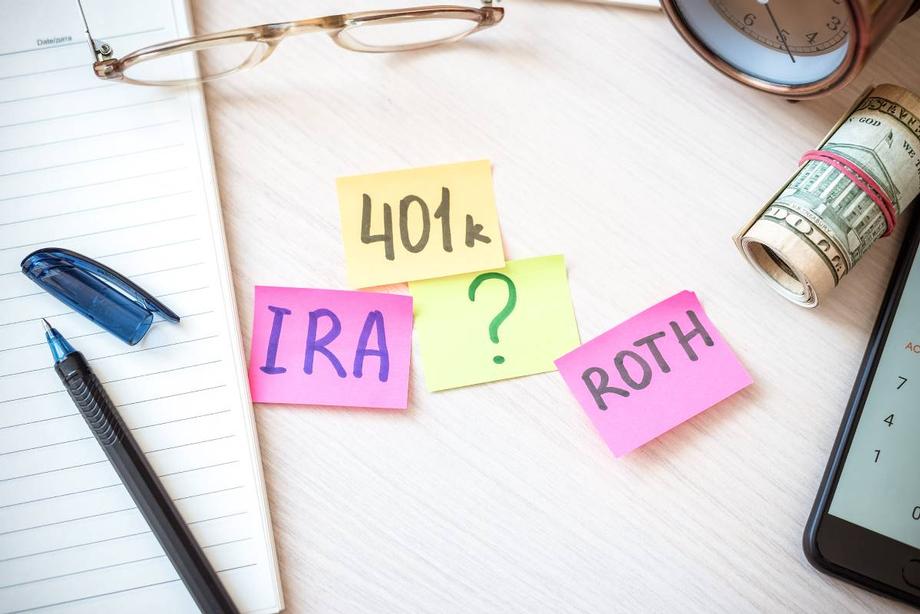When you inherit an individual retirement account (IRA), you may be burdened with additional taxes or required minimum distributions and seek ways to limit the amount you owe. You may consider converting the inherited IRA to a Roth IRA or other form of IRA to accomplish this goal. But can you convert an inherited IRA to a Roth IRA? Truly, the answer depends on how you relate to the original owner. Keep reading to learn about an inherited IRA, how it differs from a Roth IRA, and whether you can convert one type to another.

What Is an Inherited IRA?
An inherited IRA is an account that opens for a noted beneficiary when the original owner of an IRA passes away. The beneficiary can be anyone, such as a spouse, relatives, or another person, or entities like trusts or estates. While anyone can inherit an IRA, it's important to note that handling an inherited IRA is different for spouse and non-spouse beneficiaries.
How Is an Inherited IRA Different from a Roth IRA?
The significant difference between a Roth IRA and other types is that Roth IRAs can provide tax-free qualified withdrawals. Your taxes differ if you inherit a Roth IRA since Roth IRAs use post-tax dollars. If you inherit another type of IRA, you're subject to taxes on your withdrawals. This occurrence means many people want to have a Roth IRA when they inherit to minimize any costs they may experience.
Primarily, these taxes are due when you make the required minimum distributions (RMDs). RMDs are an annual amount of money you must withdraw from an employer-sponsored retirement plan. With a Roth IRA, you still withdraw the money, but may not owe taxes for the withdrawal.
Can an Inherited IRA Be Converted to a Roth IRA?
Whether you can convert an inherited IRA to a Roth IRA depends on several factors. First, is the account you inherited already a Roth IRA? If it is, then you don't need to convert it. Second, if your inherited IRA isn't a Roth IRA, are you the original owner's spouse? Whether you're a spouse affects what you can do with an inherited IRA. Finally, whether you're the sole beneficiary of the IRA also has a role in whether you can convert the inherited IRA.
For Spouses:
If you inherit your spouse's IRA, you have more flexibility than other beneficiaries. First, you can roll over the inherited IRA into your existing IRA, which lets you defer RMDs until you're 73. However, if your spouse was already receiving RMDs, you either accept the IRA's schedule or create a new one based on your life expectancy and don't have further tax burdens. Otherwise, you can wait up to five years to withdraw funds, but they will be subject to taxes. Finally, spouses can contribute to the IRA once it becomes their own.
For Non-Spouses:
Non-spouse beneficiaries experience several differences when they inherit an IRA. First, they can't contribute to it or transfer the funds into their own IRA. Instead, they must distribute all the funds as a lump sum or start a new inherited IRA. Non-spouse beneficiaries must cash out the account within ten years of the original owner's death. The exceptions to this rule are:
- Beneficiaries who are close to the same age as the original owner (within ten years of the original owner's age)
- Beneficiaries with chronic illnesses or disabilities
- Children who haven't reached the age of majority and are direct descendants of the original owner (after they become legal adults, the ten years proceeds as usual)
Notably, if you’re a direct descendant of the original owner, you may also elect to make student loan payments as elective deferrals for your retirement plan, which can affect how you handle an inherited IRA and change you’re investing strategies.
Find Wealth Management Services at David Wealth Management Group
When you need wealth management services, you can rely on the experienced financial professionals at David Wealth Management. We proudly serve clients in Connecticut, Florida, Georgia, Louisiana, Maryland, Missouri, North Carolina, and South Carolina. Contact us today to find the wealth management services you need.
The opinions voiced in this material are for general information only and are not intended to provide specific advice or recommendations for any individual.
A Roth IRA offers tax deferral on any earnings in the account. Qualified withdrawals of earnings from the account are tax-free. Withdrawals of earnings prior to age 59 ½ or prior to the account being opened for 5 years, whichever is later, may result in a 10% IRS penalty tax. Limitations and restrictions may apply.
